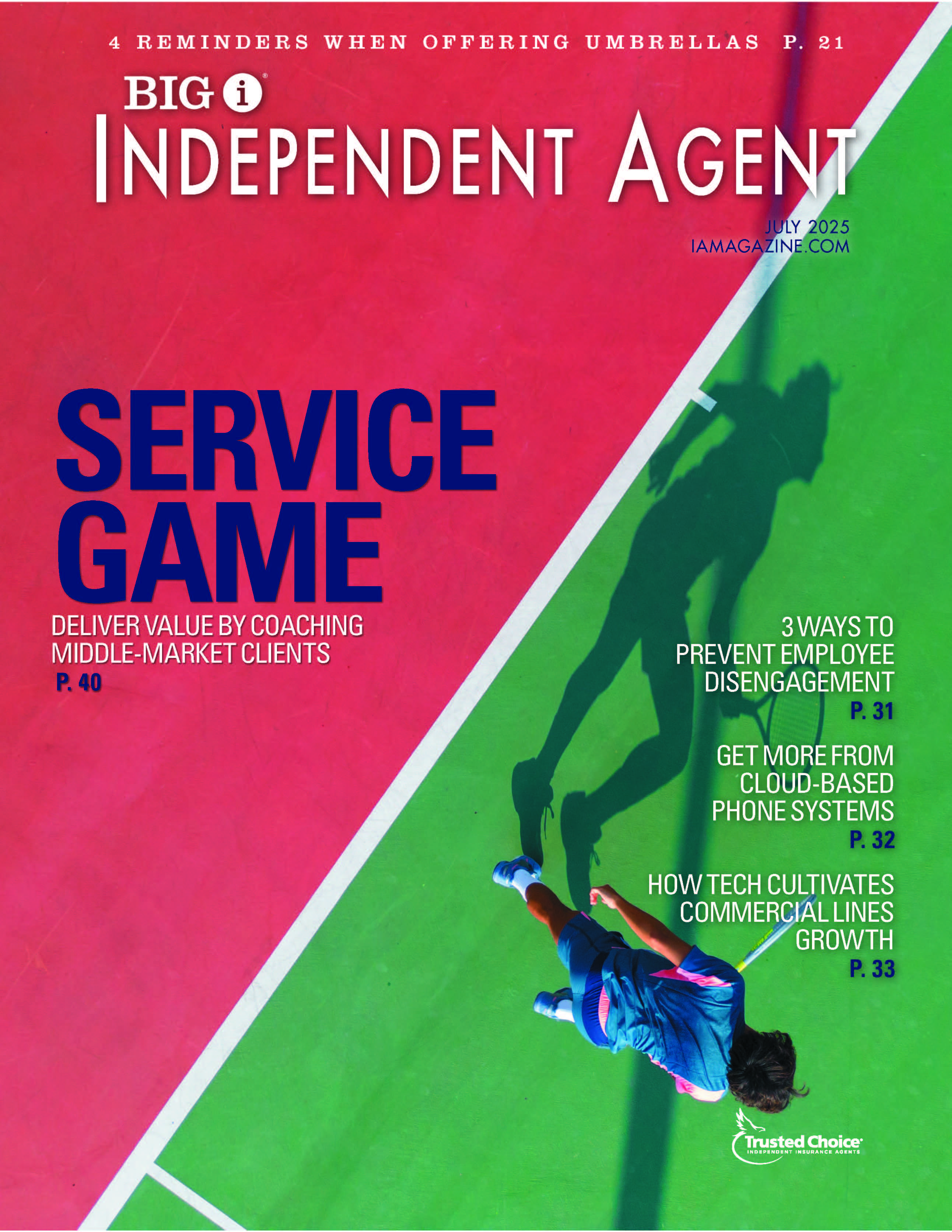8 Tips to Survive the Hard Market

By: Kasey Connors
If you joined the insurance industry in the last 10-15 years, this is probably the first hard market you have experienced and its complexities may be challenging to navigate after many years of abundant underwriting capacity and low premiums.
Many factors contribute to rising premiums in a hard insurance market, including increased claims costs, inflation, higher reinsurance rates, litigation costs, the severity of losses, supply chain, labor shortages and changes in the regulatory environment. In addition, in certain regions of the country, there is growing exposure to catastrophic claims associated with wildfires, hurricanes and other events.
While working in a hard market presents many challenges, there are a few upsides, such as the opportunity to gain expertise and showcase your value to your customers. Independent agents across the country can highlight their value to their clients by committing to active communication.
While premium increases may be unavoidable in some cases, you know how important it is to ensure your clients have the necessary coverage to protect their assets.
Here are eight tips for communicating with your clients in a hard market:
1) Be proactive about renewals. Retention is critical during a hard market. Normally, your agency should have a plan for current business renewals starting at 90 days from expiry, followed by 60 days, and then 30. For more difficult placements, such as commercial property or multi-family housing, begin earlier. Some insurance experts now suggest starting your renewal process by gathering renewal information 180 days before expiration.
When you reach out, ask your commercial insureds whether they’ve ventured into new services, or added buildings, and for personal lines clients, ask if they’ve experienced life changes such as marriage, death, children, new job, financial changes, or business ventures that could impact coverage. Also, pay close attention to evaluating property values and business income limits.
If any of your insured have experienced claims, it’s also a great time to discuss how and what steps they’ve taken to mitigate incidents from reoccurring.
2) Do your market homework. Don’t waste time remarketing every account when rates are rising across the board. Save your energy for accounts that will experience significant disruption at renewal, including much higher premiums, restricted coverage or the need to find a new carrier.
3) Communicate. Start by communicating early and often about the state of the market and its potential impacts, even before clients feel those changes. Clients need a level of awareness of what is happening before they see rising costs.
4) Build strong relationships. Cultivate strong relationships with your clients, underwriters and other industry professionals. Clients are more likely to stay loyal during a hard market if they trust and value your expertise. And, as difficult as this market has been for independent agents, it’s often just as tough for underwriters.
Right now, it’s more important than ever to invest in strong carrier relationships. “Earning the respect and trust of your carriers is paramount when quoting in a hard market,” says Todd Jackson, partner at McGowan Insurance Group in Indianapolis. “Agents need to paint the most favorable picture possible of their clients so carriers see the merits of staying competitive, and they need to trust the agent when reviewing these.”
“Demonstrate to your clients that you have all the carrier relationships needed to ensure they are getting a complete look at what is available,” Jackson adds.
5) Focus on risk management. Emphasize the importance of risk management to your clients. Help them identify potential risks specific to their industry or their family and develop strategies to mitigate those risks.
6) Diversify your portfolio. During a hard market, certain industries or coverage types will be more affected than others. Explore new areas of business to diversify your book. This helps offset any significant impact caused by a particular sector or line of business.
To build new relationships, network with trade groups, such as contracting associations, your local Chamber of Commerce, or service organizations such as a Rotary or Kiwanis club. Offer to give a complimentary presentation to local business groups about the impacts of the hard market.
7) Adapt and innovate. Explore new avenues and products to adapt to changing market conditions. Do you have a niche? How is your marketing strategy? When the market is disrupted, it is an ideal time to make sure you are very visible.
8) Seek internal efficiencies. Create a timeline and process for reviewing all accounts. Make sure dedicated, experienced staffers handle your largest clients. Reduce shopping renewals, especially for policies with less than a 15% premium increase. This drains too much energy and, given the hard market, will yield little opportunity for better placement.
Offering frequent hard market education or implementing a longer renewal period requires even more energy from servicing staff. Consider creating new capabilities by adopting new technologies or even implementing a small business unit to create more intentional servicing models based on the account size.
Lastly, remember that your clients may get upset and take that out on you as an extension of the insurers. However, don’t take things personally. If you handle the hard market with a good attitude and approach it as a learning experience for you and your customers, you’ll come out on the other side with more clients and much more industry knowledge.
Kasey Conners is vice president of marketing operations at Trusted Choice.
Download the full Trusted Choice® Hard Market Toolkit for more tips and resources to navigate the current insurance landscape.










